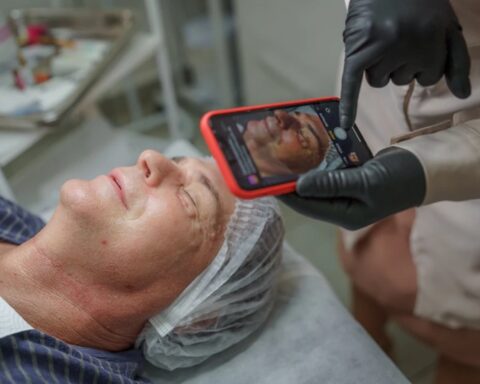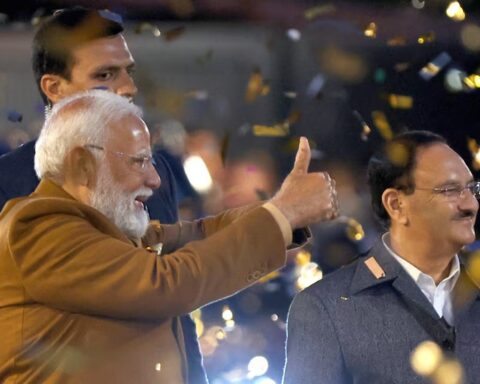New Delhi, Mar 2 (PTI) Every year, crores of Indians are pushed to the brink of financial ruin by medical emergencies, but as India gears up for the Lok Sabha polls, health remains conspicuously absent from the election discourse, feel experts.
Not only are most parties seemingly uninterested in prioritising commitments on health in their poll agenda, even the voter on the street appears to be unaware of healthcare rights, the public health experts say.
The result is that election after election, medical infrastructure and services leave a lot to be desired.
“Public health issues have traditionally not been a prominent poll agenda in India due to various factors. The most vocal sections of society ‘the educated middle class’ often do not access public health services, instead preferring the private sector. Hence, demands to improve government health services are not raised strongly,” Dr Abhay Shukla, national co-convenor of Jan Swasthya Abhiyan, told PTI.
Healthcare has suffered in the absence of adequate allocations in the Union budget under successive governments, the experts said.
India has a heavy disease burden with a WHO report stating that the country accounts for one-fifth of the total deaths occurring from stroke and ischemic heart disease, especially in younger adults.
Also, more than around 57 per cent of women (15-49 years) and 67 per cent of children (below 5 years) are anaemic, according to the National Family Health Survey 5 data, Sourindra Mohan Ghosh, assistant professor at the Council for Social Development, stated.
Not only that, the NFHS data points to a wide incidence of hypertension and diabetes, while an ICMR report says that India will have 29.8 million cancer patients in 2025.
“The Public Health System on which most poor and lower middle classes depend suffer from insufficient infrastructure and persistent shortfall of public health workforce. Private health care is unaffordable. As a result, out of pocket expenditure continues to be high,” Ghosh emphasised.
Budgetary allocation for health consistently remains low and has not achieved 2.5 per cent of GDP as recommended under the National Health Policy 2017 and 15th Finance Commission. Allocation for health has remained stagnant at around 2 per cent of the Union Budget in the last few years, according to the Centre for Budget Governance and Accountability.
If health still remains absent from the election manifestos of political parties it may be “because for most people, lack of employment, low income, absence of social security and rising cost of living assume priority”, Dr K B Saxena, former Union health secretary, told PTI.
These affect daily lives “unlike health issues that become critical only when one falls ill and unable to work”, he said.
Dr Shukla said the situation was expected to change after the experiences of the Covid pandemic, since all sections of society suffered in various ways due to difficulties in accessing lifesaving care, and unaffordable costs of private hospitalisation during peak outbreaks.
But the “Covid pandemic has changed nothing”, argued Dr R V Asokan, IMA president.
“Neither the government investment in health nor the healthcare seeking habit of the people. The indifference continues. We as a people are underprepared for falling ill,” he added.
Dr Asokan said that despite it being “well-known that investment in health brings back higher returns in GDP, there is no electoral dividend as the impact is indirect and delayed”.
According to Dr Anoop Saraya, former head of department of Gastroenterology at AIIMS, a part of the issue has to do with how the healthcare system underwent a transformation in India.
“Healthcare system in India has undergone a transformation from its initial government-funded structure to a privatised and corporatised healthcare system and underfunded public sector wherein 80-85 pc of outpatient and more than 60 per cent of inpatient care is provided by private sector.” This transformation has resulted in a system where the most vulnerable segment bears the brunt.
According to Dr Asokan, a major reason health continues to be neglected “is the short memory of the people.” “As far as the parliamentary elections are concerned the Covid pandemic should have been an election issue. The infrastructural deficiencies and the gaps in human resources were glaring. Yet it is also true that the government managed the supply chains of masks etc. well and rolled out a vaccine programme which was the envy of other countries,” he said.
According to Dr Yogesh Jain, a physician and co-founder of Jan Sawasthya Sahayog and Sangwari in Chhattisgarh, people are keen to get the right treatment from the available health system, at any cost only when they fall sick.
“When we are healthy and are not acutely sick, individually or even collectively, we don’t seem to feel the need for health care. Thus, demand and struggle for health care in future remains un-articulated,” he stated.
While the Modi government is showcasing its flagship Ayushman Bharat health insurance scheme, claiming 6.22 over crores hospital admission worth Rs 79,174 crore have been authorized under it till now, some experts feel that such schemes only strengthen the private health sector at the expense of the public health sector.
“The OPD expenditure is mostly out of pocket, which is not covered under Ayushman Bharat. It only covers treatment of certain diseases and that too after hospitalisation. Many chronic illnesses are not listed among the medical packages. This scheme provides medical coverage post discharge for 15 days only and many patients especially those with cancer require medical cover for a longer period of time. So this boasting is kind of misleading,” Dr Saraya said.
The insurance-based models will not correct the structural anomalies of the health system which were clearly exposed during the covid pandemic, he emphasised.
Dr Asokan said the Ayushman Bharat scheme needs to be re-envisioned.
“The IMA feels that the government hospitals should be funded directly by the government and the PMJAY should be exclusively used for strategic purchase from the private sector. The pricing of services should be based on independent scientific costing on a district level basis,” he stated.





